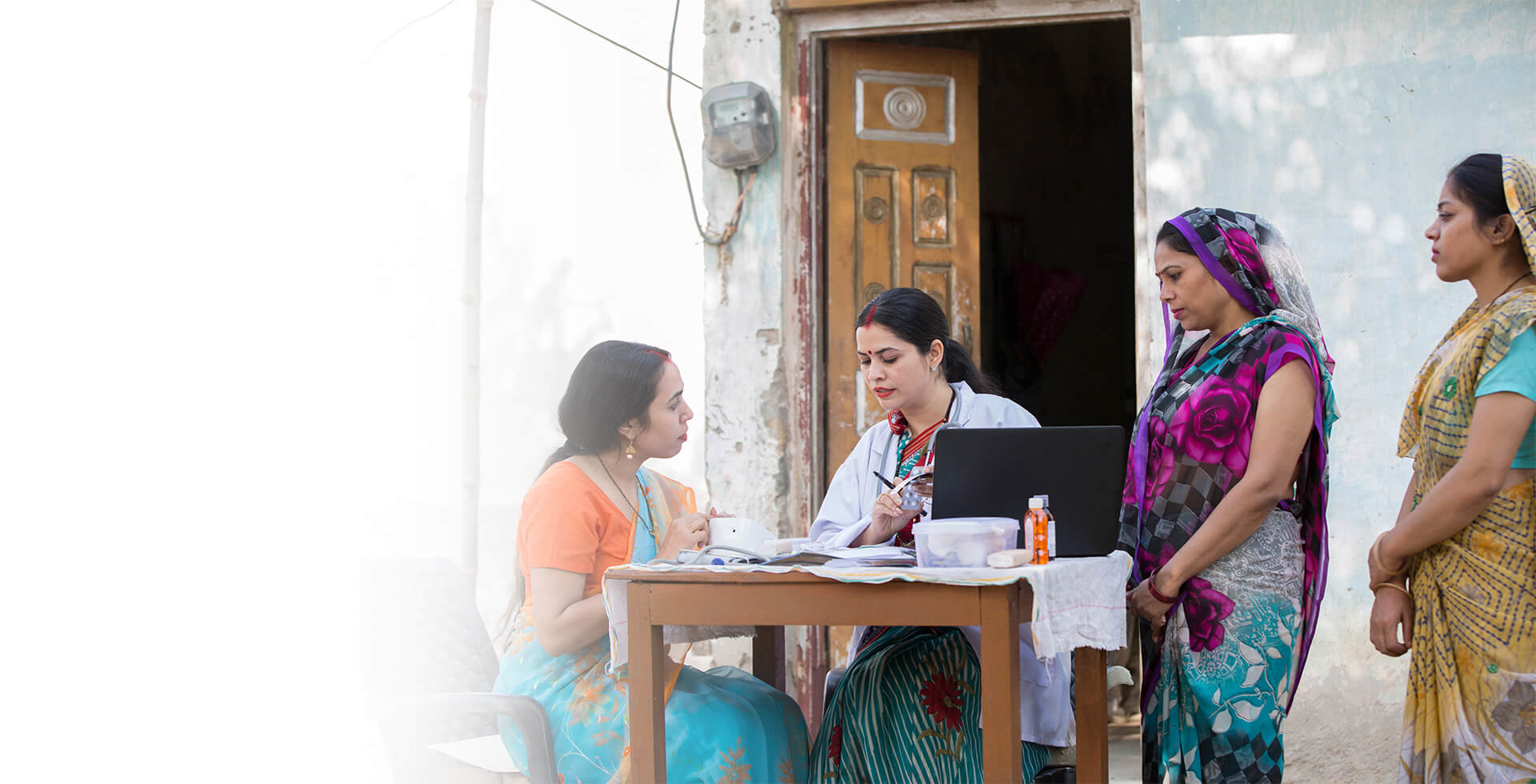Corporate Social Responsibility Policy
Dabur India's CSR Policy is inspired by the words of its founder Dr S K Burman who said: "What is that life worth which cannot bring comfort to others". While pursuing our business strategy of introducing products that give our consumers Health & Well-Being, Dabur operates in a manner that not just continues to generate an attractive return for shareholders, but also minimizes our impact on the environment and helps in replenishing the planet; while lending a helping hand to the community.
Our CSR Vision
Through sustainable measures, actively contribute to the Social, Economic and Environmental Development of the community in which we operate ensuring participation from the community and thereby create value for the nation.
Our CSR Mission
-
Ensuring socio-economic development of the community through different participatory and need- based initiatives in the best interest of the poor and deprived sections of the society so as to help them to become SELF-RELIANT and build a better tomorrow for themselves.
-
Ensuring environmental sustainability through ecological conservation and regeneration, protection & re growth of endangered plant species, and promoting biodiversity.
Our Activities
The CSR activities we pursue will be in line with our stated Vision and Mission, focused not just around our plants and offices, but also in other geographies based on the needs of the communities.
The six focus areas where special Community Development programmes would be run are:
1. Corona support initiatives
• Donation to PM Cares Fund by Dabur India Ltd
• Supporting the frontline Corona Warriors, Health Workers, Sanitation Workers etc in their fight against COVID-19
• Working with the Central and State Governments in conducting research on managing COVID- 19 with Ayurvedic interventions
• Supporting migrant workers, marginalized communities by helping them gain access to nutritious food, medicines and preventive measures
2. Eradicating hunger, poverty and malnutrition
• Provision of food, nutrition supplement, clothes etc. for the poor, children and other deprived sections of the society.
• Supporting nutrition in anganwadi centres and building capacities of anganwadi workers to this effect.
• Provision of shelter for homeless.
• Swasthya and Suraksha - An integrated programme aimed at improving health, nutrition and safety standards in rural India.
3. Promoting Health care including Preventive Health care through awareness programmes, health check-ups, provision of medicine & treatment facilities.
• Providing pre-natal & post-natal healthcare facilities, prevention of female feticides through awareness creation.
• Program for preventing diseases and building immunity.
• Promoting sanitation, making available safe drinking water
4. Ensuring Environmental Sustainability and ecological balance through:
• Plantation drives in schools, villages, our manufacturing units & offices/business premises and other areas in general;
• Reviving endangered plants, promoting agro-forestry;
• Protection of flora & fauna;
• Conservation of natural resources
• Maintaining quality of soil, air & water; adopting waste management initiatives.
• Adoption of wastelands to cultivate plants;
• Promoting biodiversity;
• Animal welfare and veterinary services.
• Technical support and Knowhow for improving farming and building capacities of small farmers.
• Promoting alternate energy resources.
5. Promotion of Education especially among children, women, elderly and the differently abled including:
• Non-formal education programmes.
• Supporting schools with infrastructure like benches, toilets, potable water, fans etc.
• Supporting other educational institutions.
• Improving educational facilities in general.
• Supporting children for higher education.
• Adult literacy for women.
6. Promotion of Ayurveda including
• Organising Ayurvedic Health Camps
• Operating Ayurvedic Health Centres – Dabur Wellness Centre & other similar centres
• Social Action Towards Harnessing Ayurveda (SAHAAY)
• Awareness Programmes on Ayurveda within the community
• Any other activity approved by the CSR Committee and the Board.
In addition, the Company has identified the following areas for Community Development interventions:
7. Promoting Gender Equality and Empowering Women through:
• Employment and livelihood enhancing vocational skills and projects, including tailoring, beautician, mehndi application, bee-keeping, food processing and preservation, vermicomposting and other Life Skill Training and livelihood enhancement projects.
• Promoting and providing credit support to women's self-help and joint liability groups.
• Training in vocations pursued by women.
• Setting up homes for women & orphans;
• Setting up old-age homes & other facilities for senior citizens
• Setting up hostels for working and student women, day care centers for kids of working women
8. Contribution to:
(a) incubators or research and development projects in the field of science, technology, engineering and medicine, funded by the Central Government or State Government or Public Sector Undertaking or any agency of the Central Government or State Government; and
(b) public funded Universities; Indian Institute of Technology (IITs); National Laboratories and autonomous bodies established under Department of Atomic Energy (DAE); Department of Biotechnology (DBT); Department of Science and Technology (DST); Department of Pharmaceuticals; Ministry of Ayurveda, Yoga and Naturopathy, Unani, Siddha and Homoeopathy (AYUSH); Ministry of Electronics and Information Technology and other bodies, namely Defense Research and Development Organisation (DRDO); Indian Council of Agricultural Research (ICAR); Indian Council of Medical Research (ICMR) and Council of Scientific and Industrial Research (CSIR), engaged in conducting research in science, technology, engineering and medicine aimed at promoting Sustainable Development Goals (SDGs).
9. Rural Development Projects.
10. Other Activities like:
• Promotion of Sports with special focus on training for rural sports, nationally recognized sports, Paralympic sports, Olympic sports.
• Welfare for differently disabled persons
• Setting up public libraries
• Reducing inequalities faced by the socially and economically backward groups
• Protection of national heritage, art, culture and handicraft; Restoration of Buildings & sites of historical importance & works of art.
• Welfare of armed forces personnel, war widows and their dependents
11. Incidental Activities
• Employing people and incurring other costs to carry out aforesaid activities.
12. Such other activities as the Board may consider to be appropriate.
Our approach to implementation
We will strive to implement the aforesaid CSR activities on our own to the extent possible. However, the principle implementers of our CSR activities would continue to be our foundation, Sustainable Development Society (Sundesh) and our trust, Jivanti Welfare and Charitable Trust, supported by Dabur Foundation and Dr. S.K. Burman Charitable Trust. At the same time, we recognize the need to work in partnership with other players also. This would include:
-
Collaborating with various organizations, which are registered as a Trust or a section 8 company under the Companies Act, 2013 or Society or NGOs or any other form of entity incorporated in India that specialize in the aforesaid activities which has registered itself with the Central Govt. under the provisions of Rule 4 of the Companies (Corporate Social Responsibility) Rules, 2014 (as amended from time to time).
-
Contribution to various funds which are aligned with our Vision and Mission e.g.
• Prime Minister's National Relief Fund
• Any other fund set up by the Central Government for:
i. socio-economic development and relief.
ii. for the welfare of Scheduled Castes, the Scheduled Tribes, other
iii. Backward classes, minorities and women.
-
Collaborating or pooling resources with other companies to undertake aforesaid CSR activities or any other CSR Activities approved under Section 135 of the Companies Act, 2013.
CSR Funds
The corpus for the purpose of carrying on the aforesaid activities would include the following:
-
2% of the average Net Profit made by the Company during immediately preceding three Financial Years.
-
Any income arising there from.
-
Surplus arising out of CSR activities carried out by the company and such surplus will not be part of business profit of the company.
Monitoring
The CSR department will provide regular progress report to the CSR Committee of the Board. This report would indicate:
-
Achievement since last progress report / during the last quarter in terms of coverage compared to the target and reasons for variance.
-
Achievement of the year-to-date in terms of coverage compared to the target, plans to overcome shortfalls if any and support required from the CSR Committee/Board to overcome the shortfalls.
-
Actual year-to-date spends compared to the budget and reasons for variance.
-
In respect of activities undertaken through outside Trust/Society/NGO's etc. there will be mechanism of regular reporting of progress on each of the activities and the amount incurred thereon, in line with the requirement of individual projects.
The Board shall seek a short progress report from the CSR Committee on a quarterly basis.
Effective Date pursuant to Board Approval:
Version 1: Original policy dated 22.01.2014
Version 2: First amendment dated 29.04.2014
Version 3: Second amendment dated 31.10.2017
Version 4: Third amendment dated 02 05.2019
Version 5: Fourth amendment dated 30.07.2020
Version 6: Fifth amendment dated 01.04.2024









 View PDF
View PDF